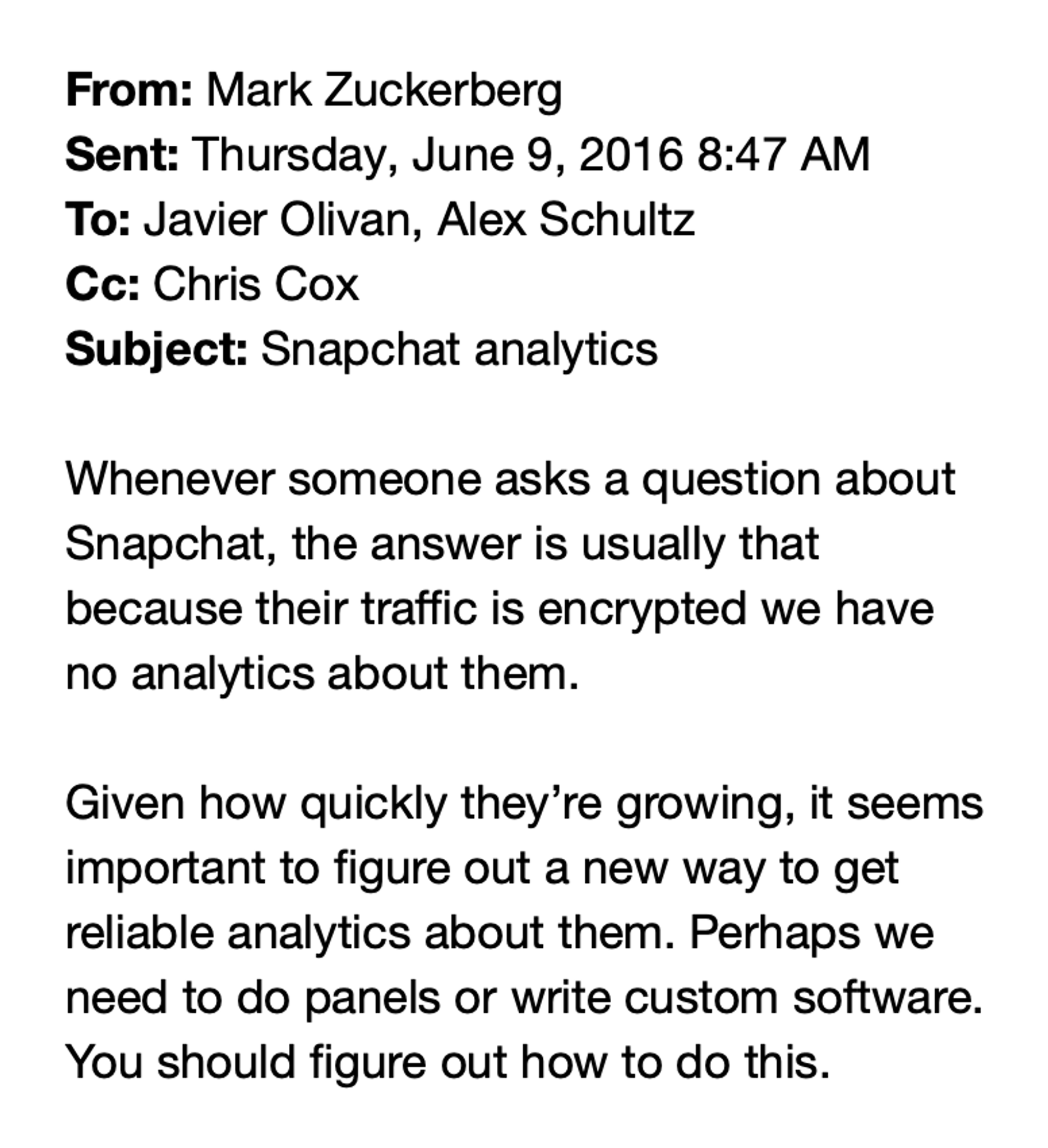
Mark Zuckerberg's Attempt to Crack Snapchat's Encrypted Data A Case Study in Competitive Practices
In the highly competitive world of social media, companies often go to great lengths to gain an edge over their rivals. A recent revelation has brought to light one such instance involving Meta (formerly Facebook) and Snapchat. According to unsealed court documents, Meta CEO Mark Zuckerberg once directed his executives to figure out how to obtain encrypted data from Snapchat to gain a competitive advantage in the advertising market. This incident, which dates back to 2016, has significant implications for data privacy, corporate ethics, and the ongoing legal battles Meta faces.
The Directive
The directive from Zuckerberg came at a time when Facebook was feeling the heat from a rapidly growing Snapchat, which had not yet gone public. In an email to Javier Olivan, then Facebook’s head of growth, and two other executives, Zuckerberg emphasized the need to gather reliable analytics on Snapchat’s traffic, which was encrypted. He suggested that the team might need to create custom software or use alternative methods to bypass the encryption.
“Whenever someone asks a question about Snapchat, the answer is usually that because their traffic is encrypted we have no analytics about them,” Zuckerberg wrote. “Given how quickly they’re growing, it seems important to figure out a new way to get reliable analytics about them.”

The “Ghostbusters” Project
Following Zuckerberg’s directive, Facebook employees allegedly launched an internal effort to gather data on Snapchat users, known as the “Ghostbusters” project—a likely reference to Snapchat’s ghost logo. As part of this effort, Facebook reportedly used an app called Onavo, which was later shut down in 2019 due to controversy over its data collection practices.
Onavo was designed to intercept traffic for specific sub-domains, allowing Facebook to read what would otherwise be encrypted traffic. This method enabled Facebook to measure in-app usage of Snapchat and other competitors, including YouTube and Amazon.
Legal Implications
The revelation of Zuckerberg’s directive surfaced as part of a class-action lawsuit in California federal court. Meta is accused of deceiving users about its data collection practices as part of a broader anti-competitive strategy. Meta has denied any wrongdoing, arguing that the plaintiffs’ claims are baseless and irrelevant to the case.
Despite Meta’s defense, the incident has added to the company’s growing list of legal challenges. In October, a coalition of 33 state attorneys general sued Meta, alleging that the company ignored the harmful effects of its platforms on underage users and engaged in deceptive and unlawful conduct.
Ethical Considerations
This incident raises serious ethical questions about corporate behavior and data privacy. While competitive intelligence is a common practice in business, the methods employed by Meta in this case appear to cross ethical boundaries. The use of software to intercept encrypted data not only violates privacy norms but also undermines trust in digital platforms.
Moreover, the revelation of Zuckerberg’s directive highlights the aggressive tactics that tech giants sometimes use to maintain their dominance. Such actions can stifle innovation and competition, ultimately harming consumers.
Conclusion
The case of Mark Zuckerberg’s directive to crack Snapchat’s encrypted data serves as a stark reminder of the lengths to which companies will go to stay ahead in the competitive world of social media. As Meta continues to face legal scrutiny and public backlash, this incident underscores the importance of ethical conduct and transparency in the tech industry. For users, it highlights the need for vigilance and advocacy for stronger data privacy protections.
Call to Action
As we navigate the complexities of digital privacy and corporate ethics, it is crucial for both users and regulators to hold tech companies accountable. By advocating for transparent practices and robust data protection laws, we can help ensure a safer and more equitable digital landscape for all.